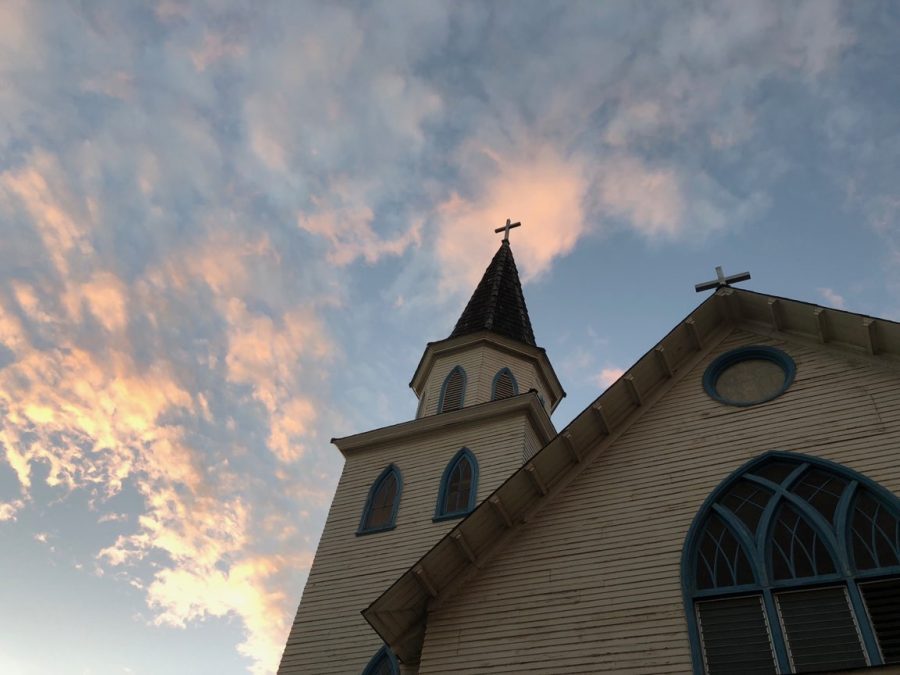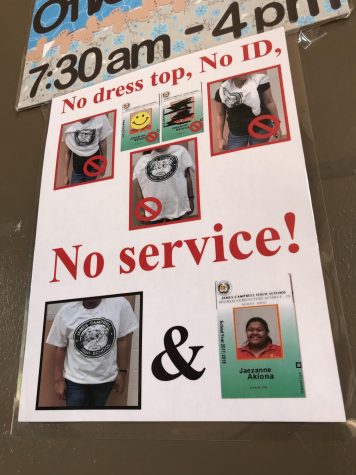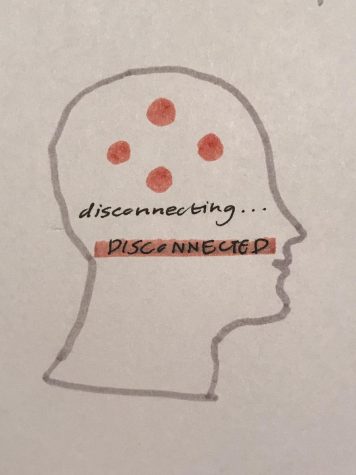Losing my Religion… Confirmation
The restoration of the original order of the Catholic sacraments.
November 1, 2018
To many Catholic teenagers, confirmation is the sacrament that brings about the most spiritually touching experiences of their lives. It is the first sacrament in their faith journey that strongly reinforces the concept of self-discipline, it is the sacrament in which teens must take control and claim accountability for their own spiritual preparedness. Whereas individuals are put through the sacraments of baptism and first holy communion at the request of their parents, confirmandees are responsible for their own religious experiences from thereon.
It is said that after Jesus had been crucified, the Apostles returned to Jerusalem to celebrate the Jewish harvest festival of Shavuot (the end of the barley harvest and the start of the wheat harvest). During the festival, the Holy Spirit descended upon them, sounding like a strong gust of wind and appearing as sharp tongues of fire. For several moments, the Apostles all began to speak in foreign languages that they previously knew nothing of, fulfilled and overwhelmed with the Holy Ghost. The sacrament of confirmation is meant to imitate the first ever day of what Catholics now call Pentecost. When an individual is confirmed, that is what happens: the Holy Spirit is descended upon the individual, and the spirit is permanently sealed within them forever.
Currently, 10 of these 178 dioceses and archdioceses in the United States alone have restored the original order of the sacraments, the state of Hawaii being the latest to join this list. In January of 2016, Bishop Clarence Silva of the Honolulu Diocese made an announcement that has split the Catholic Church of Hawaii in half. Bishop Silva has called for the restoration of the original order of the Sacraments of Initiation.
The original order of the sacraments during the first 500 years of the Roman Catholic Church was baptism, confirmation and then first holy communion. More often than not, these sacraments were all received during the same mass, all at once, sometimes even as early as a few days after being born. It is said that first holy communion is meant to be the completion of the sacraments. The original order is meant to imitate Jesus Christ’s life; he was baptized, he received the Holy Spirit (in the form of confirmation) and then he received the Body and Blood in the form of Bread and Wine.
Beginning in the year 2020, however, children will begin being sealed with the gift of the Holy Spirit at ages 7-8 years old, receiving first holy communion within the same mass.
While this purpose has the apparent intent of bringing children closer to God in the form of receival of the Sacraments, will it actually? Should children really be welcome to make this decision before even really understanding the great spiritual (and permanent) multitude of the sacrament?
“I think that being confirmed before receiving communion makes sense because you should be saying yes to the faith before being able to receive Jesus’ body and blood,” current confirmandee Kira Kaplan said. “But, getting confirmed at that young of an age is something I question. How are 7 and 8 year old kids supposed to choose a saint and sponsor on their own when they’re so young?”
Often, the most exciting achievement of many teens’ confirmation experiences stem from their choosing of their saint and sponsor. “In choosing a saint name, we are reflecting on our own spirituality, our strengths and weaknesses, and finding a friend in the process. These saints, like our sponsors, will play an integral role in our spiritual journey, walking beside us as we grow closer to God and praying for us along the way,” said Melissa Quantaro, the Director of the Saint Mark Catholic Church Youth Ministry.
It takes most teenagers approximately two years to choose their confirmation saint, as it is a permanent bond that cannot be broken after the individual is confirmed in their name (in other words, it isn’t a matter to be taken lightly or with haste). “Only the confirmandee can decide how far they want to go their relationship with God, that’s why being able to choose things like your saint and your sponsor is really important,” current confirmandee Jezarae Ragasa said.
At the age of 16, which is the approximate age of which confirmation takes place for individuals for the past 1,500 years, people begin to exert their own personal autonomy and develop a personality and mindset that strays from that of their parents’. As a result, in this duration of time, religious life isn’t necessarily a focal point for many. High school is a difficult time period of self realization and self improvement, and the struggles endured throughout these 4 years can be detrimental in shaping your attitude towards your faith. Family issues and other discouraging and disturbing occurrences also tend to elicit feelings of resentment towards the very concept of praising a God that is emphasized to love you throughout your entire life. Personally, I didn’t take my distressing and painful high school experiences too well, and as a result, my faith remained neglected for years. I became so angry with this so-called “merciful and loving” God that the idea of remotely practicing my religion seemed ridiculous. However, after all this, it was confirmation that brought me back to the church, and it has been to this day the greatest decision I have ever made.
The tragic and painful events we have endured is what makes confirmation the most spiritually enlightening of our sacraments. After our heartache and disappointments, there is great comfort in knowing that through it all, there is a gift from God waiting for you in the form of a sacrament, regardless of how far you may have strayed from your religious life.
At 7 or 8 years old, will confirmation still be of the same value to these children (who have not even experienced the extent of what hardships life has to offer)?





